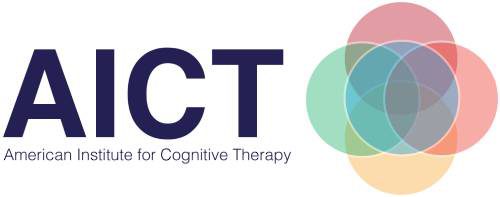Eating Disorders
Eating disorders are the result of a combination of genetics, biology, psychology, and societal definitions of beauty. Combine these with general life stress and low confidence and an eating disorder may emerge. The extreme dieting associated with eating disorders often begins as a way to gain control over one’s weight and improve self-confidence. Ultimately this may result in the adoption of rigid food and exercise rules, obsessive thoughts about food and shape/weight, and disrupted relationships.
Eating disorders can overlap with depression or anxiety. Patterns of impulsivity and perfectionism are also common. Individuals often seek treatment because they are having difficulty performing at work or school, loved ones are expressing concern, their relationships are being impacted, they begin to experience medical complications or they feel controlled by the eating disorder.
schedule a consultation at or intake@cognitivetherapynyc.com
Anorexia Nervosa:
- Food restriction
- Low body weight
- Fear of gaining weight or of being “fat”
- Difficulty putting on weight
- Minimizing or disregarding medical dangers associated with low body weight
- Relying on thinness to gain self-confidence
- Binge eating and/or purging behavior may occur
- Limited ability to shift one’s thinking about shape/weight
Bulimia Nervosa:
- Frequent episodes of eating objectively large amounts of food in short periods of time and not feeling in control during these episodes
- Frequent reliance on elimination behaviors such as vomiting, laxative or diuretics, abstaining from food intake, and/or extreme exercise.
- Body shape/weight is not objectively evaluated
Binge-Eating Disorder:
- Frequent episodes of eating objectively large amounts of food in short periods of time and not feeling in control during these episodes
- Eating quickly, beyond fullness, when not hungry, typically when alone, and/or experiencing negative emotions (guilt, depression, disgust)
Other Specified Feeding or Eating Disorders:
- Night Eating Syndrome
- Other eating disorders that do not meet the standard criteria listed above
What Causes Eating Disorders to Develop?
It is not entirely understood. What we do know, based on the work of Christopher Fairburn, MD, at Oxford University and others, is that eating disorder symptoms are maintained once they’ve started. Fairburn and his colleagues have shown that most individuals with eating problems, regardless of what form these problems take, tend to display similar types of thinking about themselves. They place tremendous emphasis on the importance of their bodies, believing that the key to their self-worth lies in their ability to reach an ideal shape and weight. In order to achieve their ideal (and usually unattainable) shape and weight, they set very strict dietary rules for themselves. Unfortunately, it is impossible to adhere to such strict rules, which causes people to feel that they have “failed” in their efforts and cannot control themselves. Such feelings of “failure,” often combined with life stress, negative emotions, and poor self-image, can lead to binge eating and purging, excessive exercising, and/or renewed attempts at strict dieting. These types of behaviors (binge eating, purging, excessive exercising, and/or food restriction) are self-reinforcing, causing a person to focus on their shape and weight, which then causes the cycle of problematic dieting and eating behaviors to continue.
the highest quality
cognitive-behavioral
treatment”
How Does CBT for Eating Disorders Work?
Eating disorders can get worse and become harder to treat the longer an individual goes without treatment. In some cases, hospitalization or intensive outpatient treatment may be necessary, at least initially, to ensure medical stability prior to beginning standard outpatient treatment. When attending outpatient treatment, it is common for your therapist to coordinate with your medical provider and other health-care providers.
When seeking treatment for any eating disorder, your therapist will address the following:
- Education about eating disorders
- Establishing a regular eating routine through self-monitoring of eating patterns
- Challenging food rules, re-learning to eat certain foods again, and reducing ridgid eating patterns
- Exploring the triggers for episodes of binge eating, and finding other ways to cope Identifying reasons for excessive focus on shape/weight, and finding other ways to value oneself
- Addressing and challenging unhelpful thinking patterns
- Ending frequent checking/avoidance of one’s body shape
- Learning ways to regulate intense emotions
- Targeting interpersonal problems, low confidence, and/or perfectionism, if present
- Preventing relapse
What About Weight Loss?
How Long Is Treatment?
What Do I Need to Do?
CBT for eating disorders may initially be anxiety-provoking for individuals first starting treatment. The anxiety typically lessens once seeing how it can disrupt the cycle of problematic eating behaviors. Individuals pursuing treatment are asked to give the therapy an honest try and to practice skills learned between sessions.
If you would like further information about CBT treatment for an eating disorder, or if you would like to schedule an appointment for an eating disorder assessment, please call the American Institute for Cognitive Therapy at 212-308-2440.

